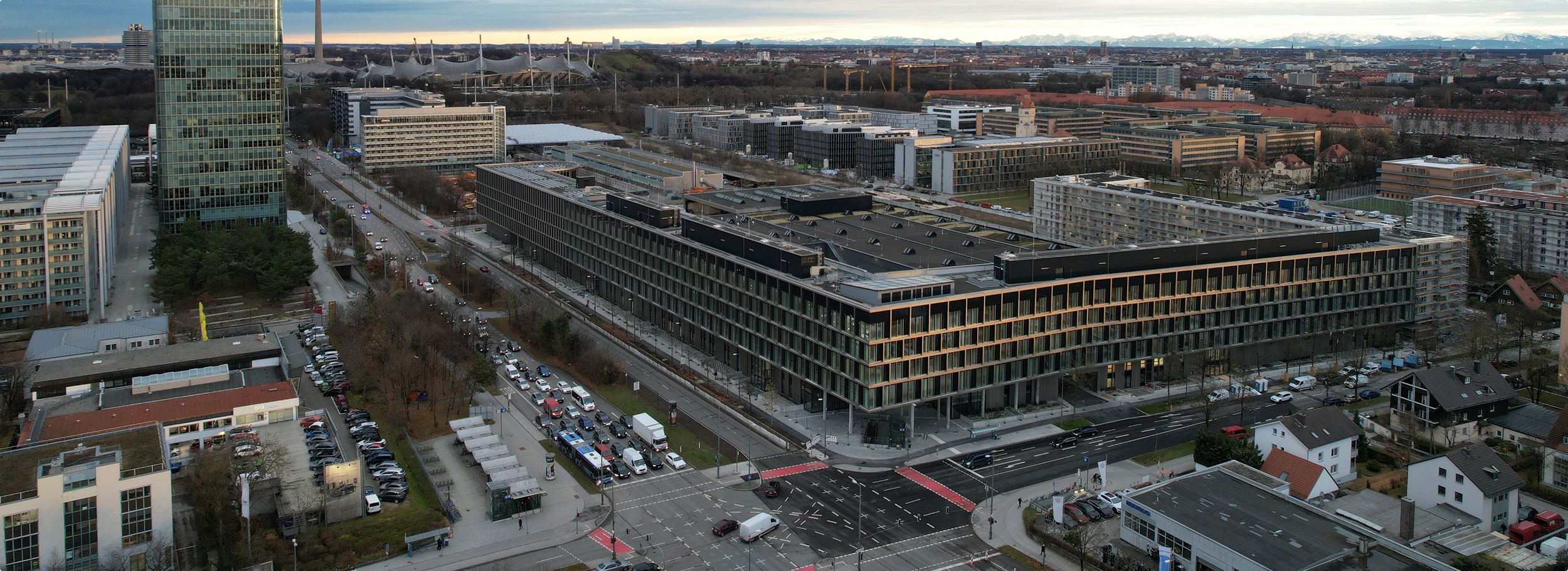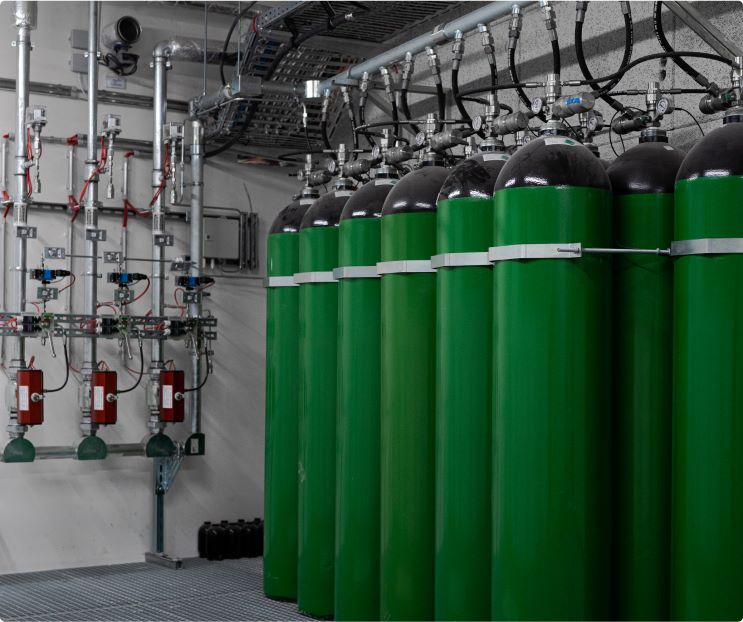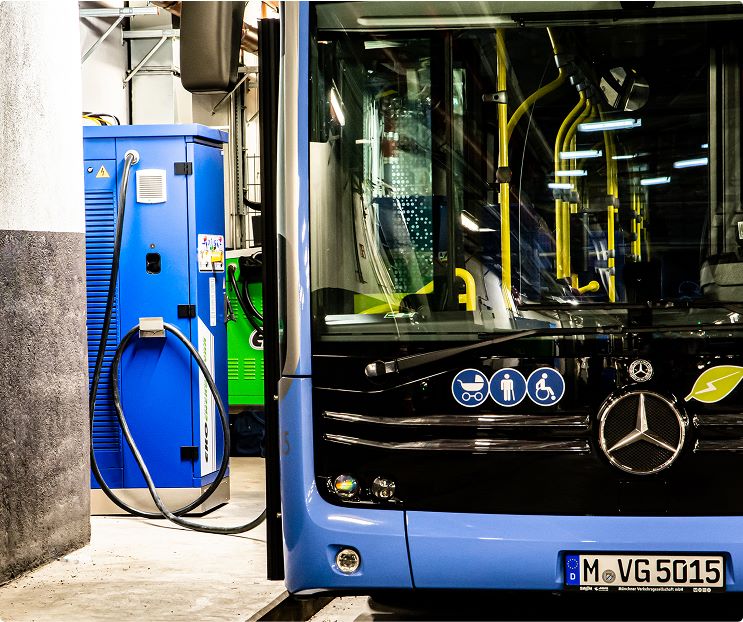Pioneering solutions for a greener Munich
Stadtwerke München GmbH (SWM), one of Germany’s foremost public transport operators, has embarked on an ambitious project aimed at transforming urban transport into a clean, efficient, and sustainable system. This forward-thinking initiative, designed to accommodate over 200 electric buses, includes a cutting-edge bus depot equipped with innovative charging infrastructure developed in close collaboration with Ekoenergetyka, a leader in electromobility solutions. Incorporating smart automation, energy-efficient charging, and space optimization, this project has successfully tackled the challenges of modernizing a large-scale fleet while reducing environmental impact. With an energy recovery system that repurposes waste heat, SWM is not only addressing operational efficiency but also sustainable urban living.
Let's talk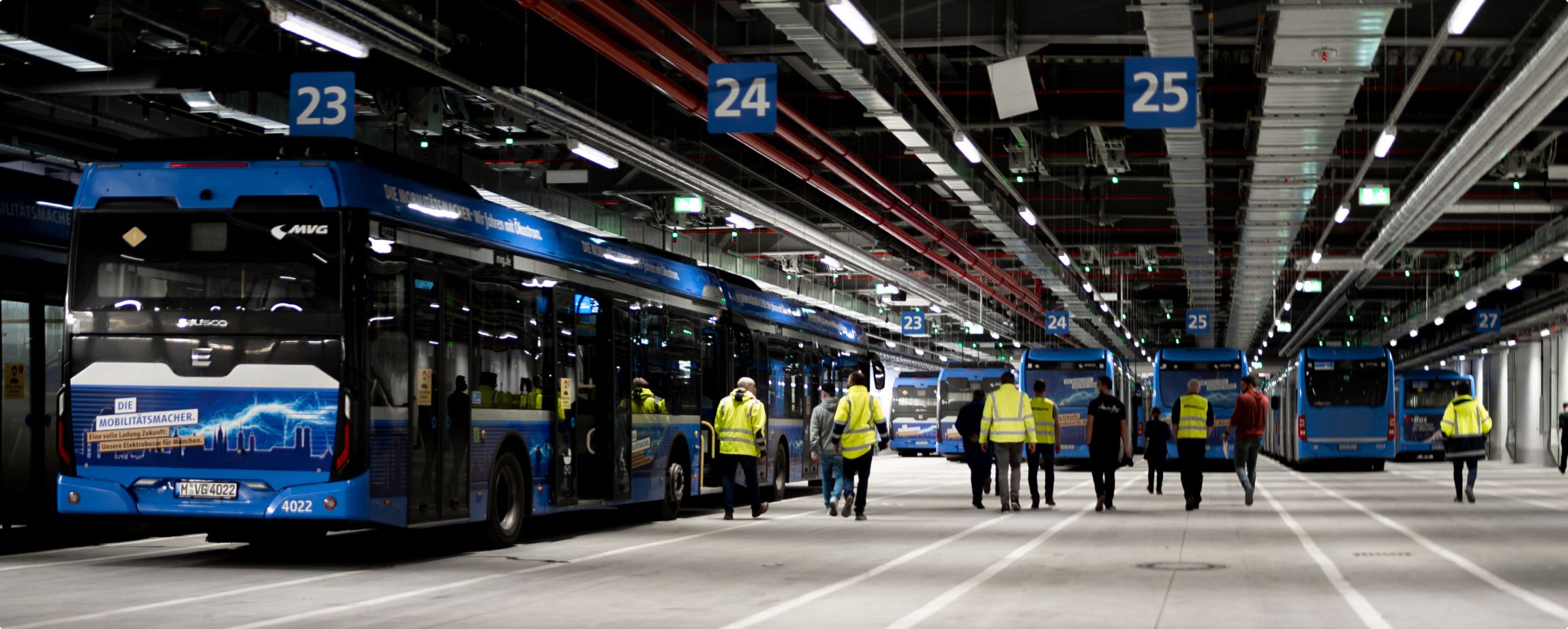
Munich leading the way in electric mobility
Thanks to the collaboration between Stadtwerke München and Ekoenergetyka, Munich is now home to one of Europe’s most advanced electric bus depots. With innovative solutions for space optimization, energy efficiency, and automation, the project stands as a beacon for cities across the globe.
Munich is not just adopting electric mobility
– it is leading the charge in making cities cleaner, quieter, and more energy-efficient. This project serves as a powerful inspiration for other cities looking to revolutionize their public transport systems and create more sustainable urban environments.
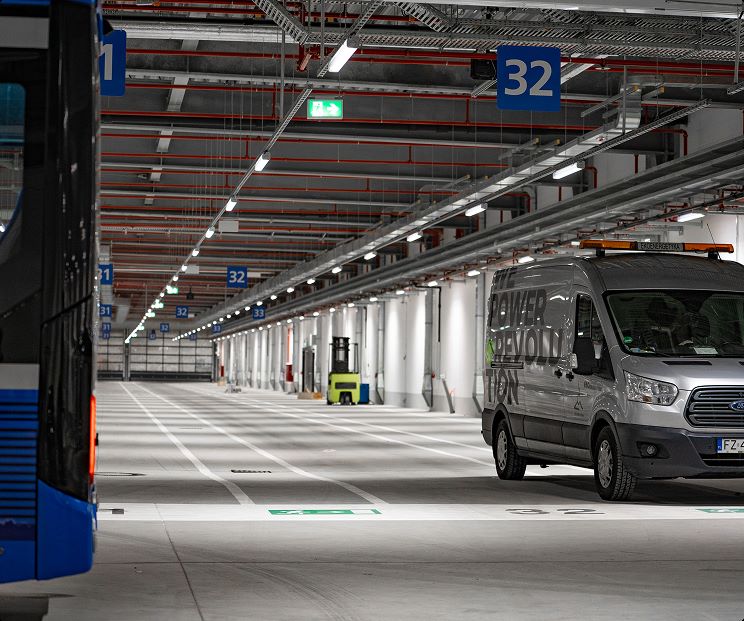
By harnessing the latest in electromobility technology and energy recovery, this project is more than just a transit hub
– it is a model for future urban transport. With further expansions already in the works, Munich is poised to set the global standard for sustainable, efficient, and scalable electric mobility.
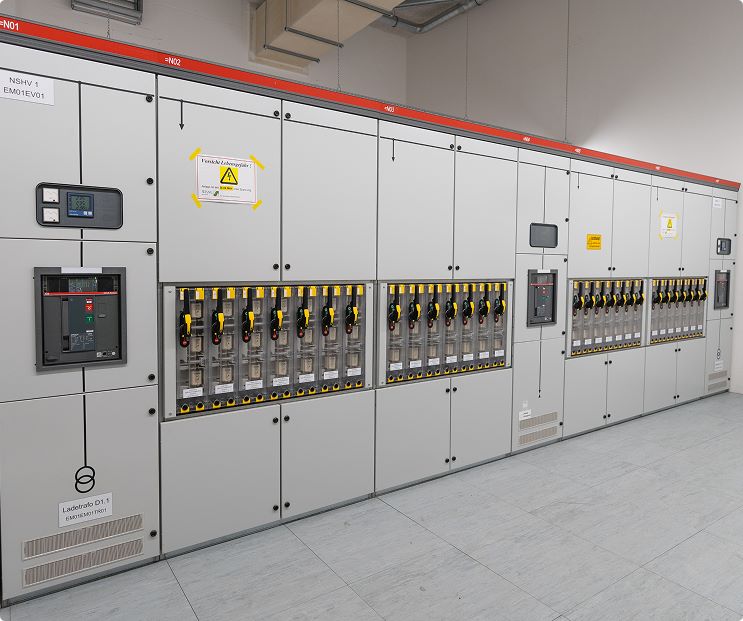
Tackling project challenges: space, energy efficiency, and noise
The development of the new bus depot came with several key challenges. The project team, in partnership with Ekoenergetyka, found innovative solutions that not only met the needs of the city’s growing electric fleet but also exceeded expectations in terms of space efficiency and environmental sustainability.
Space efficiency
The depot was designed with careful attention to optimizing every square meter of available space. The strategic placement of charging points above the buses maximizes the space within the facility, providing a clean, organized, and efficient layout. This design is particularly crucial in urban environments where space is often limited.
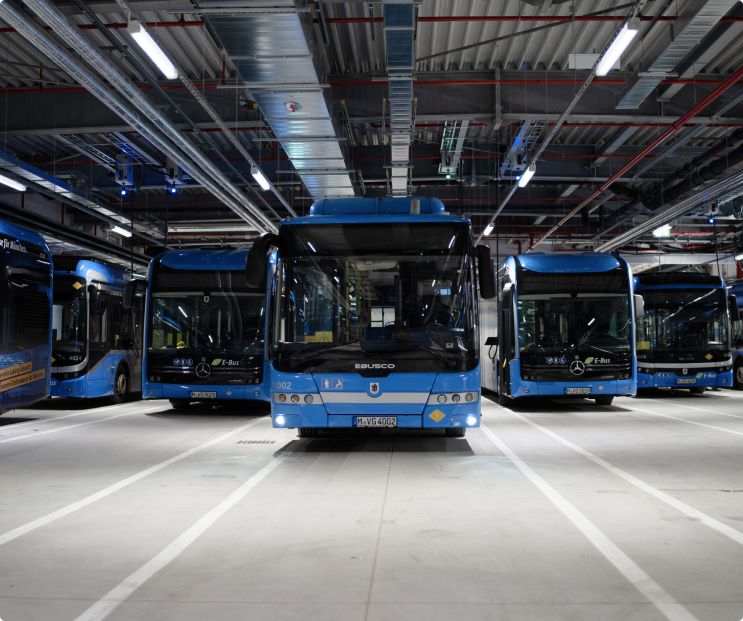
Energy efficiency & waste heat recovery
With liquid-cooled charging stations and a robust waste heat recovery system, the project efficiently repurposes excess energy. The recovered heat is used to warm rooms, offices, and even domestic hot water, reducing the building's overall energy consumption. This solution ensures that the depot remains both cost-effective and environmentally responsible.
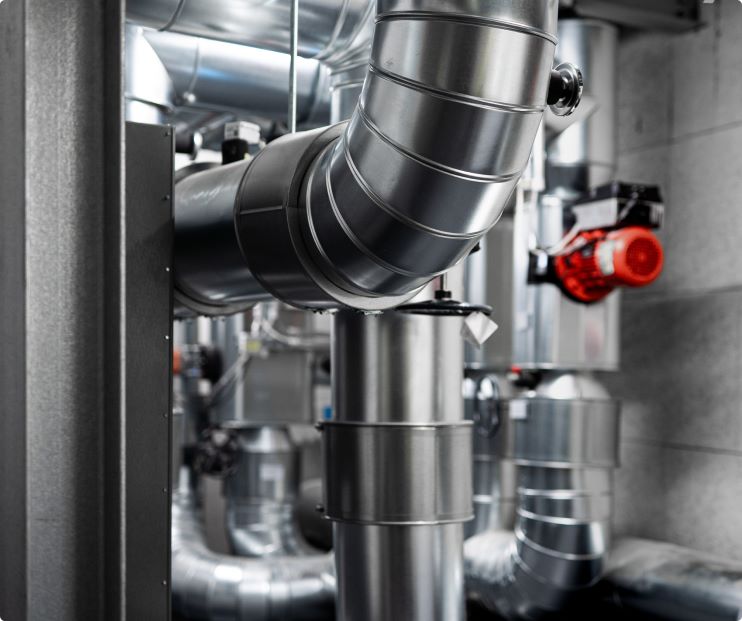
Noise reduction
The depot's location on a key city route, surrounded by residential and office buildings, required careful attention to noise levels. Thanks to the use of liquid-cooled power modules, which produce minimal noise, the depot operates quietly, ensuring that the surrounding area remains unaffected by the infrastructure.
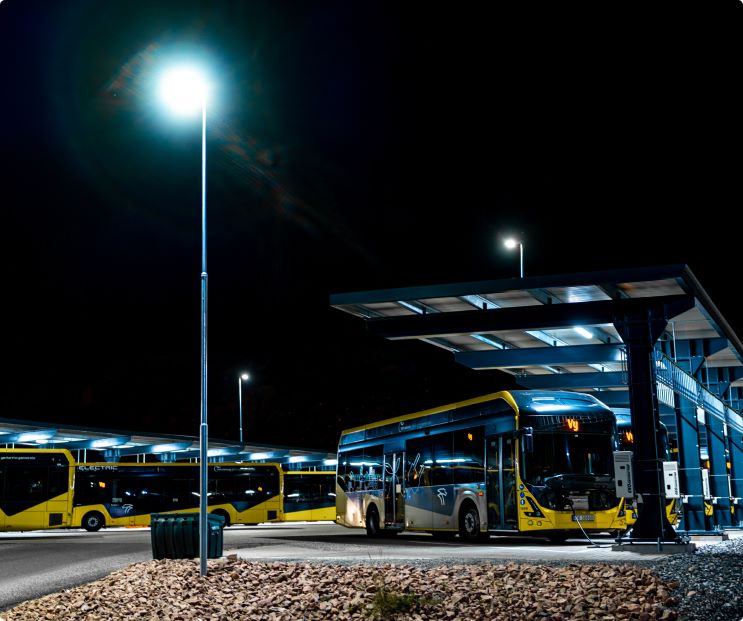
Automated systems and future scalability
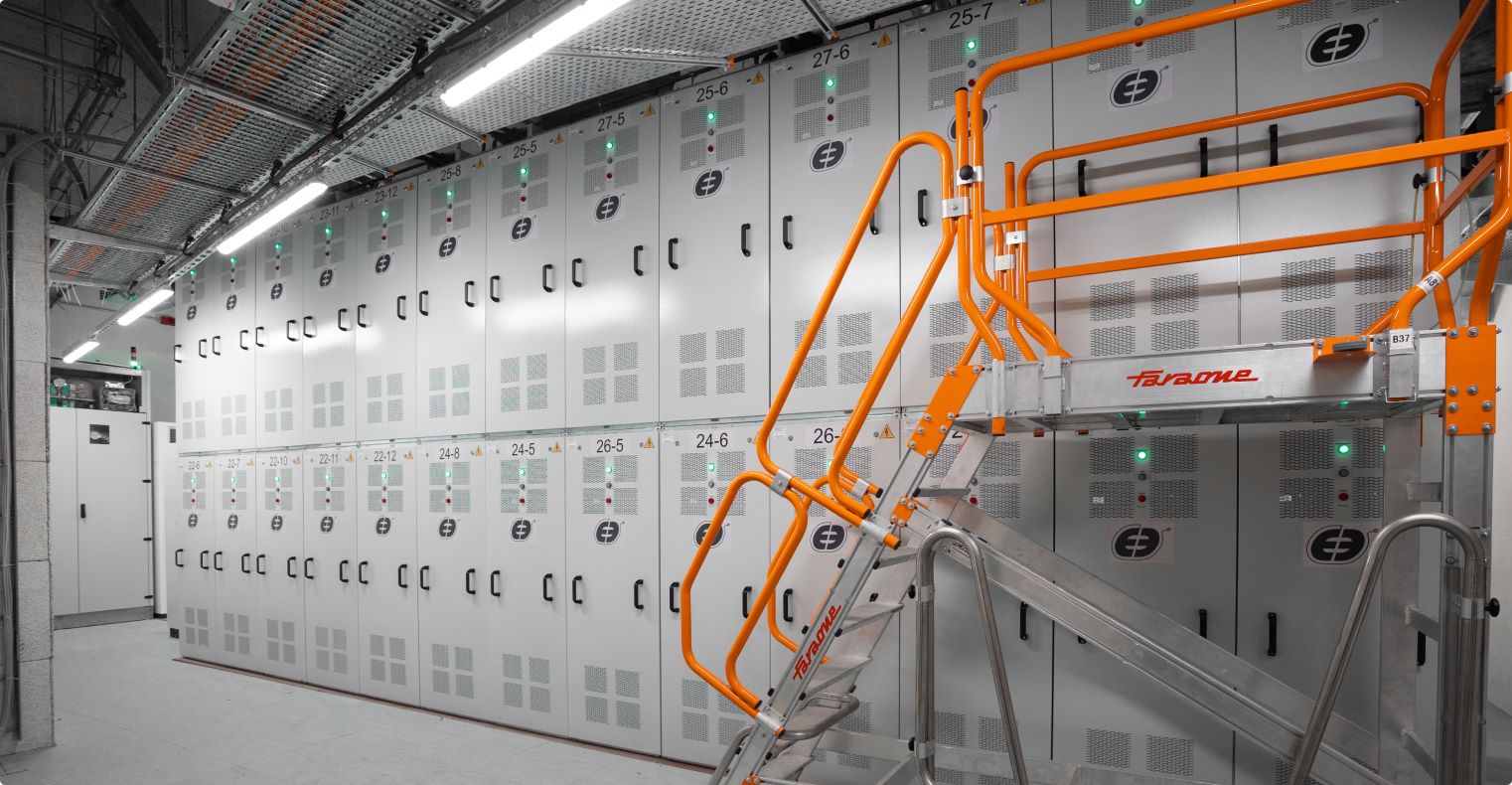
The numbers behind the innovation
This project is not just a significant step for Stadtwerke München but also a model for other cities looking to implement large-scale electric mobility. Here are the key numbers that underscore the scale and ambition of the project:
This scalable infrastructure is designed to not only meet the current needs of the fleet but also future-proof the system, ensuring that as demand grows, the infrastructure can expand to accommodate new electric buses.
Waste heat recovery: sustainability at Its core
One of the standout features of this project is the waste heat recovery system, which plays a pivotal role in enhancing the sustainability of the entire facility. By utilizing the heat generated by the charging stations, the depot is able to reduce its energy consumption and repurpose the heat for various uses: Heating rooms and offices: the recovered heat is used to warm office spaces and rooms at the bus depot, ensuring that the facility remains comfortable and energy-efficient. Domestic hot water: the heat is also utilized for generating domestic hot water for various needs, including bus washing at the depot. This integration of waste heat recovery reduces the overall carbon footprint of the facility, creating a more sustainable and cost-effective solution that benefits both the environment and the city.
Let's talkA model for the future: scalability and redundancy
The project’s scalability and redundancy features make it a model for future public transport infrastructure: Redundancy in power and cooling: the system includes dual-redundant power and cooling components, with each part of the system connected to multiple units. In case of failure, the system automatically switches to backup components, ensuring uninterrupted operation. Automatic power reduction: in the event of any issues, the system automatically adjusts the power of the charging stations to maintain optimal function, ensuring reliability even in challenging circumstances.
Learn moreSend us
a message
Looking for the ideal electric vehicle chargers? Fill out our contact form and discover how we can match our innovative technology to your unique requirements.
